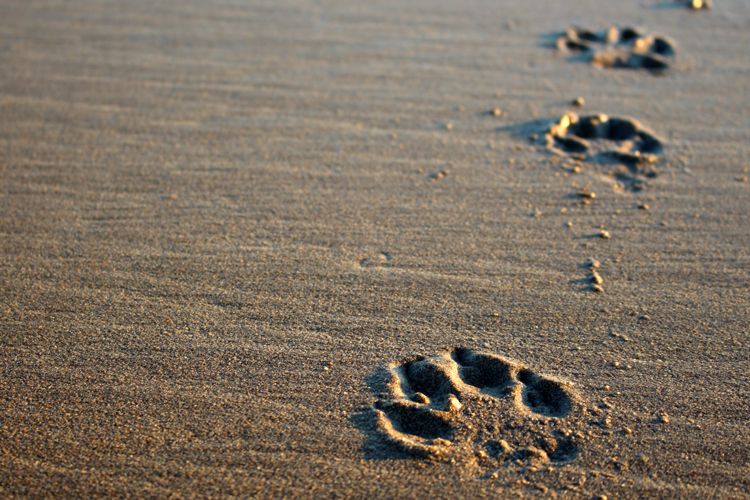How To Eliminate All The Skeletons In Your Closet After You Die
Questionable browser history, racy photographs, and private health conditions are just a few posthumous scandals you might want to avoid. What secrets do you want to take to the grave?
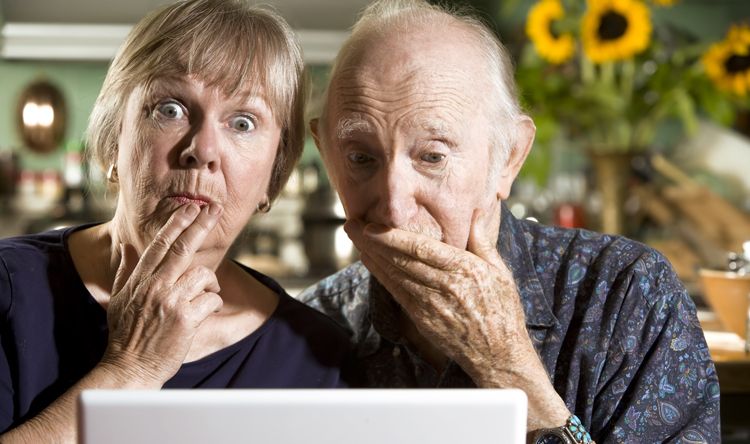
Most people don’t want to have their personal items, correspondences, and predilections revealed to family and friends when they’re no longer around to explain themselves. We’re not here to judge or change the rules of society, we’re just here to help with a two step process: Identifying items and ways to eliminate them.
Some items are obvious, some aren't. The one thing you really need is a person you trust implicitly. This confidant will be referred to as your Cleaner: Someone who will do exactly what you ask without judgement. They’ll go through your computer, dresser drawers, medicine cabinet and anywhere else questionable landmines might be lurking. Then they’ll actually delete and or destroy them without question or complaint.
Even though a Cleaner isn’t a legal title like Executor, Health Care Proxy or Power Of Attorney, you’re trusting this person with extremely sensitive information. It can also be an upsetting, thankless job, which requires discretion and the ability to keep everything they’re asked to do a secret for the rest of their lives.
Reasons For Disposal: The D.I.E.S Chart
Why might someone want things erased from the earth upon their passing in the first place? We identified four areas and created this adorable chart complete with representative icons:

Dangerous: Anything that poses a safety threat, especially to kids… or teenagers looking to raid the medicine cabinet.
Illegal: Items that would have gotten you arrested if the cops searched your house while you were still alive.
Embarrassing: Here’s a quick test: Could you put this item in plain site when the family comes over for Thanksgiving? If you answered ‘no’ then it falls into this category.
Secret: Information, affiliations, or relationships you wouldn’t want getting out to your family, friends, or general population.
Yes, there are probably more categories but we wanted to keep it simple. Plus, those things wouldn’t spell out “D-I-E-S.”
Tip: Do not put any of this stuff in your actual Will. You want these things to remain private and a Will becomes a public record. So, rather than eliminating skeletons, you’d be putting them on display; like that one house in your neighborhood that goes all out on Halloween. Only this wouldn’t be cool; it’d be super embarrassing. Instead, view this as an Ethical Will, which expresses your thoughts and beliefs to your family but doesn’t hold any legal weight.
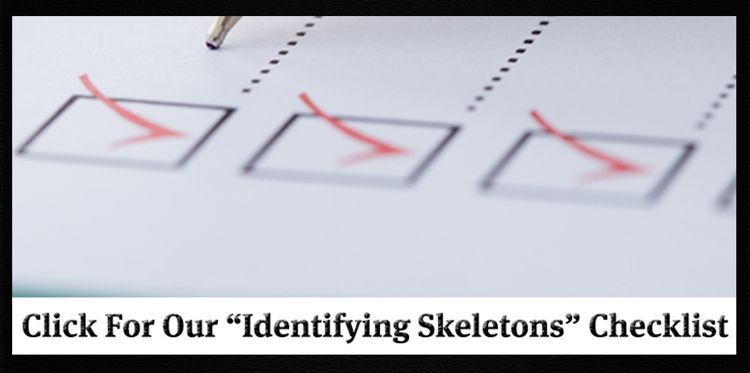
Disclaimer: This article should not be viewed as legal advice in any way! It’s a simple guide with tips to take care of things many people keep tucked away in dark corners of their lives. Please take it as such.
Now that we’re all primed and ready, let’s get to cleaning.
Computer, Phone, and Tablet

This is where a bulk of offending material may rest. You have to make sure your Cleaner has the password to your devices, along with some directions if you kept things hidden especially well.
Sweep and Clear: Browser History


This is clean-up 101. If you’ve never heard of “private browsing” or “incognito” you’ll probably need someone to delete all your browsing history along with cookies and other info. This isn’t just for adult material… even though that’s usually the main culprit. It could also be searches or other pages you visited you just don’t want people to know about.
Browser-by-Browser Guide
Chrome: Copy and paste this link into a Chrome browser: chrome://settings/clearBrowserData#cooki
Chrome (In-Depth): Settings > Show Advance Settings (little link at the bottom) > Privacy > Content Settings (opens a new window) > Cookies (click “All cookies and site data,” which opens another window) > Click “Remove all” then “Done” > Click “Done” on “Content Settings” page > Click “Clear browsing data…” > Where it says “Obliterate the following items from:” make sure “the beginning of time” is selected > Click “Clear browsing data”
Firefox: Preferences > Privacy > Clear History and Remove Cookies
Microsoft Internet Explorer: Tools > Safety > Click “Delete browsing history” > Select the “Cookies and website data” checkbox > Delete
Safari: Go to the Safari menu at the top > Select “Clear History and Website data…” > Select “all history” from the dropdown > Click “Clear History”
Sweep and Clear: Hard Drive


The objective is to locate and delete all offending files: Photos, videos, documents, bootleg software, and anything else you want gone. Ideally, you should offer some guidance since people don’t keep secret items in a folder on their desktop called “Super Secret Things Go In This Folder, Which Should Be Deleted Upon My Death.” It doesn’t have to be a treasure map, but it should mention folders you want deleted.
If photos and videos have been hidden or renamed, have the Cleaner search for file types (.jpg, .mov, etc...) or just delete the documents, photos, and video folders. You can also go the other route and tell them what to salvage, such as a photo folder, and then delete everything else.
After you do this, don’t forget to empty the trash or all the work was for naught.
When All Else Fails… If you know a computer is too difficult to clean, just tell your Cleaner to either wipe it completely (factory reset) or smash it and toss it in the river.
(BONUS NOTE: Before making a trip to the river, go through the rest of this list because there’s probably a lot more stuff that’ll be going for a swim.)
Sweep and Clear: External Backups


People have become very adept at backing up their computers — whether it's an external hard drive, thumb/flash drives, DVDs or CDs — so much so that a Cleaner could delete requested material on a computer and still have to do it all over again on backups. There are three simple solutions:
1. Give your Cleaner specific instructions on what needs to be done with each device. Keep in mind, the reason you have backups is in case of a computer meltdown. Since you’re no longer around, that’s not an issue.
2. Tell your Cleaner to reformat the drive and use it as new.
3. Smash it and toss it in the river along with the un-cleanable laptop.
Sweep and Clear: Email


What would happen if your family, friends, or coworkers could read all your emails and IMs? What if you have secret email accounts no one in your immediate life knows about? Out of context, which it would be since you can’t defend yourself, it could get very ugly. Maybe you want your Cleaner to search for specific names and delete those emails, texts, and chats. Maybe you want everything deleted. You make the call, just make sure your Cleaner has access to those accounts. [Related article: What Happens To My Email Accounts When I Die?]
Sweep and Clear: Phone/Tablet
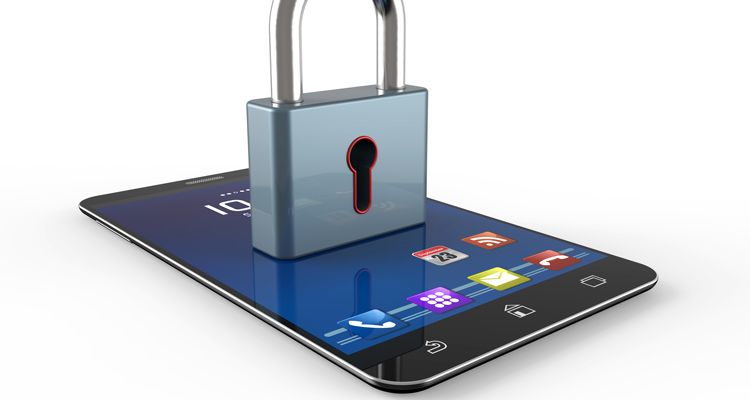

A phone or tablet can be the ultimate source of portable secrets, which means you should share the password for the device to be properly cleaned. From there you might want all your texts deleted, especially ones that could cause stress to your spouse/kids/family. Same goes for contacts in your address book who you’d rather keep secret.
Just like email and texts, when it comes to social media, there’s the part you share with the world (or your “friends”) and then there’s private messages on Facebook, Twitter, Google+ (as well as Google Hangouts and Google Voice), Instagram, and any other service offering private messaging. You could also have multiple accounts (Catfish anyone?) and want all but your primary account deleted. Let your Cleaner know along with how to access said accounts and what to do with them.
[Check out our massive list of How To Close Digital Accounts And Services When Someone Dies.]
Sweep and Clear: Apps


There’s a new generation of apps for meeting people, which are often referred to as “hookup apps.” (If you don’t know what this means, use your imagination.) There are a few out there but some popular ones right now are Tinder (straight) and Grindr (gay). You’ll probably want to delete these, especially if the deceased was still married or never came out of the closet. Again, if there are other apps you might want gone, let your Cleaner know.
Site Memberships and Digital Subscriptions

“She leaves behind a husband of 35 years… and a very active dating profile he knew nothing about...”
Sweep and Clear: Dating Profiles/Memberships and Adult Sites
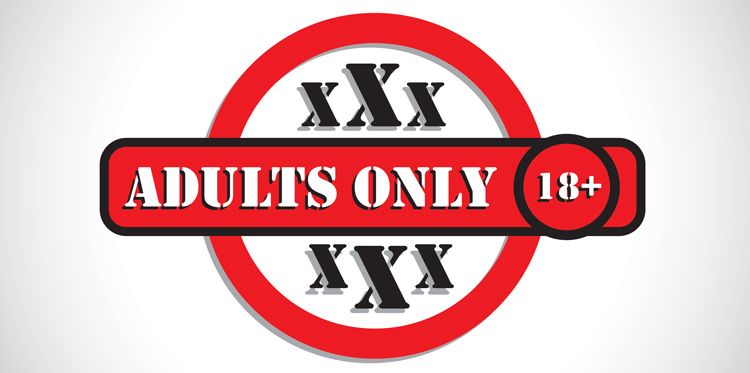

Along the lines of deleting browser history, a Cleaner needs to know about any online memberships that require deletion. The most common type of paid membership would be for dating sites like Match, eHarmony, OkCupid, etc... If you don’t want people to know you used one of these services (or if you’re in a relationship but always kept your options open) send in the Cleaner.
A Cleaner might also need to cancel subscription payments for adult sites. If it’s a free site you can leave it be unless given other instructions to delete the account.
Sweep and Clear: Digital Help For Personal Issues


While “Cleaning” might be centered around hiding relationships and adult content, there are other serious and personal subscriptions and memberships a person might want to keep private forever.
For example, if a person is a member of a support group for abuse, addiction, or a mental disorder and kept it private throughout their life, why should it be revealed in death? It might be common in society for people to talk about their problems, but there are still many who like to keep their personal struggles private. If this is the case, make sure your Cleaner knows of these accounts and unsubscribes or deletes your information and any emails or newsletters you may receive.
Sweep and Clear: Cloud-Based Storage


Dropbox, iCloud, Google Drive and other services allow you to backup files to a virtual hard drive. You should treat these accounts the same way you would files on a computer. The only difference is some of these services charge monthly or annual fees, so you might want your Cleaner to do a sweep of offending material and eliminate these accounts before the next billing cycle.
Tip: It’s unfair to have an estate continue to autopay a cloud storage account because Cleaners and Deputies don’t have time to clean it out. If you’re tasked with handling this aspect of someone’s estate try and get these accounts sorted and removed as soon as you can.
Physical Media, “Toys,” and Possibly Offensive Material
Let’s ease into this section since it can get uncomfortable very fast.
People hide things around their homes. Some might be odd trinkets or memories that have no apparent meaning, while others are painfully obvious upon discovery. Younger generations might not have the amount of physical items as older generations (example: a stack of adult magazines), but there’s always something somewhere you might not want on display. The item could even just be something that was given to you as a joke, which was later thrown in the back of a drawer or in a box stored in the attic for 20 years.
Sweep and Clear: DVDs, VHS, Magazines, and Photos


Even in the digital world lots of people still kick it old school. If you have a centralized stash, like a collection of steamy romance novels in a chest under your bed, let your Cleaner know of this hiding place. If they're scattered all around, give the Cleaner a general idea. If there are any names or addresses on the material, mainly on adult magazine subscriptions (you know, from back in the day when this was a thing), rip them off and shred.
Apart from “professionally” produced material, there could also be hard copies of amateur footage, either video or photographs; some of it might even be homemade. (Again, no judgements!) If you already deleted the digital stuff this should be a breeze. Just shred and toss.
After you’ve done a full sweep, everything should be put in a black garbage bag and discarded in a dumpster behind a superstore or other anonymous location. Do it off-hours and it’ll make you feel like you’re a spy. So exhilarating!
Sweep and Clear: “Toys,” Racy Garments and Novelty Items


No, not Legos and Star Wars action figures. The type of "toys" that an adult might keep hidden. We’re not saying you use these toys, or leather mask and underwear, but perhaps they’re just hanging out waiting for someone with no discretion at all to find.
Even something as simple as basic lingerie or a pair of fuzzy pink handcuffs someone gave you as a joke could be misconstrued. While you might not want to describe said items to anyone, just let you Cleaner know things of this nature may exist and where they might be kept.
Tip: Keep some hand sanitizer at the ready.
Sweep and Clear: Books and Other Items That Could Be Misunderstood


Self-help books might seem harmless, but some could reveal a problem of yours that you don’t want known. Example: Most men don’t go around bragging about impotence.
Same goes for books or relics centering around what may be viewed as radical ideology (e.g. anarchism, communism, terrorism…) If there’s something you think might have people question your beliefs or how you lived your life, let your Cleaner know what you want done.
Personal Correspondence, Hidden Assets, Weapons…
This section starts off quite romantic but escalates into other areas very quickly. Please be prepared.
Sweep and Clear: Love Letters and Notes


Books and subsequent movies like Bridges of Madison County and The Notebook have made finding old love letters and journals the height of romance. Sure, it might be sweet to see how your parents corresponded when they first met. But in reality, do you want your son or daughter reading naughty letters you may have exchanged with a high school crush? Or give them definitive proof of an affair?
Perhaps you kept these items because of sentimentality, or you never got around to throwing them away. Point being, if you don’t want them passed around at the next family reunion, tell your Cleaner where they are and to shred away.
Sweep and Clear: Journals and Diaries


People don’t keep private diaries and journals so they can be shared at some point. Personal thoughts can be shocking, especially if the person who wrote them was going through a tumultuous moment in their life.
If you wake up in a cold sweat worried that a sibling, child, spouse, or friend might one day read these private thoughts, make sure your Cleaner knows where you keep them so they can toss them in a fireplace. (We’d suggest the river, but that’s getting awfully crowded with all the other stuff.)
Sweep and Clear: Hidden Assets


There’s always a story popping up in the news where someone bought a couch or painting at a garage sale or thrift store and found thousands of dollars stashed inside. Most of the time it’s because the person either forgot the money was there or didn’t know when they generously donated the item to the Salvation Army.
Lesson Time — Estate Distribution 101: Here’s how estate distribution happens. You make a Will and name an Executor, who’s in charge of distributing assets according to your instructions. In most Wills you only include the big ticket items (cash/financial holdings, house, car, jewelry...), and other things are left off (furniture, shoe collection, lawn mower…) These items fall into your “residuary estate” and it’s up to your Executor to determine where they go; often they’re split up among the family depending on who wants what. If you don’t name an Executor, the court will do it for you, and that person will be able to do whatever they want with your estate.
Now that we got that settled, what if you have a lot of money hidden somewhere that you don’t want to be part of your estate? You want the $50,000 hidden in the basement going to the mother of your illegitimate child rather than your other children? Whatever it is, unreported money or assets over a certain limit is illegal, so while we can’t condone having a Cleaner take these assets and give them to the person you want to have them, it’s your life (and death).
A Legal Alternative: Again, it’s illegal to hide assets and if they come to light they will be part of the Probate proceedings and subject to estate taxes. Our suggestion: Don’t use a Cleaner for this and see an estate attorney to do it legally, most likely through a Trust. This way it will be protected from estate taxes and will end up where you want it to go. [For more info on how this works, check out our article on Irrevocable Trusts].
There’s also a chance you hid money or jewels away somewhere and completely forgot about them. Treat this article as a reminder to go find them!
Sweep and Clear: Wigs, Prosthetics and Piercings


Some people go to great lengths to keep their beauty tricks a secret, even when it’s obvious to the rest of us that they’re wearing a hairpiece or other form of cosmetic prosthetic (falsies, shoe lifts, etc…).
If you have a spouse or live with a trusted family member, odds are they already know and are more than willing to keep this private. For those without someone that close, or if you have an extremely private piercing or body modification you want to keep secret forever, your Cleaner should be tasked with disposing of said items or calling a funeral home and making sure they don’t reveal their findings to the family.
There’s a decent chance this will go unnoticed and the funeral home might not say anything… but they might. Best to call, explain the situation, and ask for it to be removed and disposed. It might be a very strange call to make, but funeral directors deal with a lot of requests and this will by no means be the weirdest.
Sweep and Clear: Medication


From a safety perspective, it’s always smart to dispose of medication after a death. However, if you’ve secretly lived with a condition, like suffering from a mental disorder (example: manic depression), or a persistent sexual transmitted disease (e.g. herpes), your Cleaner should do a sweep of your medicine cabinet and throw away anything and everything that’s stronger than Advil or Tylenol.
Another issue may arise if you were on painkillers (e.g. Percocet, Oxycodone, Vicodin) and are worried someone close may steal them for personal use. The Partnership For Drug-Free Kids reported that one in five teens misuses prescription drugs, and often shares them with friends to get high. Maybe you want to keep them out of the hands of a family member suffering from addiction. Rather than have the temptation around, or possibly cause a rift in the family after you’re gone, have your Cleaner toss these as well.
Tip: Don’t flush pills down the toilet. Instead, just empty them into the trash. We also suggest taking the labels off of the bottles since they may contain personal information.
Sweep and Clear: Narcotics


Even though prescription drugs can be just as deadly and addictive as narcotics, there’s the whole “legal” factor to take into consideration. Unless yours is the type of family that passes bongs down from generation to generation, you probably don’t want your stash being discovered while people are rifling through your stuff. Granted, not all drugs are created equal.
Even though marijuana is legal in some states, and others view it as an alternative to drinking alcohol, it’s still illegal in most. Have your Cleaner do with that as you will, and don’t forget to include all the related paraphernalia.
While the stigma of pot usage has lessened, the harder stuff (e.g. cocaine, crack, heroin, methamphetamines) often indicate a much bigger problem, and can cause a lot of heartache to friends and family after a death.
Regardless of the circumstances, or the struggles people face during their lives, keep this in mind: Death is death, regardless of the circumstances. After a death, it’s about the surviving loved ones, who will have to deal with judgement if the secret addiction were to become public, especially among families or social circles that feed off of negative drama.
Granted, most in the midst of a serious addiction have bigger issues than posthumously preserving their reputation. Naming a Cleaner might not be a factor for this person, but a thoughtful and understanding close friend or family member can help tremendously. The same can be said for removing alcohol from the house of a deceased alcoholic out of respect for the family.
Unless the deceased publicly struggled and wanted to be used as an example for future generations, discretion as opposed to sanctimonious morality goes a long way in these situations.
Sweep and Clear: Unregistered Weapons


There’s a protocol for properly getting rid of registered guns, rifles and other firearms. Call up local law enforcement and they’ll come over and remove them. But that’s not what we’re talking about here. What about unregistered firearms, and other weapons like knives, brass knuckles, blackjacks, and explosives?
WARNING! The person caught with weapons will suffer the consequences. If your Cleaner gets pulled over with illegal weapons in their trunk, then they’re the ones going to jail. So please be responsible.
Knives and non-exploding items: Knives aren’t necessarily illegal, so you can tell your Cleaner to give them to someone, sell online, or toss them in the trash. A Cleaner can take ownership of these weapons, however it then becomes their responsibility if they get caught in a state where those weapons are illegal.
Firearms and Explosives: This is one of the few areas where a Cleaner should not remove those items from the house. Instead, the Cleaner should treat these the same way they would legal firearms. Let local law enforcement know the situation and work with them to safely remove them. Unless it’s a box of firecrackers the Cleaner should not, under any circumstances, be handling them if they don’t know what their doing.
But, What if… The weapon a Cleaner is asked to dispose of was used in a crime? Okay, Columbo, we’ll play along.

If you’re asking someone to get rid of, let’s say, a gun you used in a crime and got away with, we have this question for you: Why are you still keeping that gun!?!? Unless you want the gun to be a posthumous confession to a crime (example: “Cleaner, I want you to tell the police the location of this weapon and give them this confession letter”) either turn yourself in and face the consequences or get rid of it right now.
Sweep and Clear: Actual Skeletons…


How did this section become an episode of Law & Order?
There’s an old saying: “A good friend helps you move. A best friend helps you move a body.”
But seriously, if someone ever wants you to dispose of an actual body call the cops immediately. Because things just got real.
Personal History
Odds and ends that should take care of everything not mentioned above.
Sweep and Clear: Criminal Record


If you did the crime and served your time, it’s understandable if you don’t want it to be mentioned in a Death Notice or Eulogy. A Cleaner can’t make the charges disappear, or erase them from the public record, but they can eliminate any discharge papers or other remnants you may still have in your possession.
Sweep and Clear: Dishonorable Discharge


There are many reasons a person may be dishonorably discharged from the military, which is the most serious discharge a service person can receive. It means you were tried and convicted at a general court martial, of a serious crime, resulting in a loss of all benefits. Since it’s roughly equivalent to having a criminal record, it’s understandable that a person would want to keep this a secret.
Again, a Cleaner can’t make this disappear, but they can help smooth over the situation if the family expects to receive a military funeral or other benefits and are declined.
Sweep and Clear: Divorce Decrees and Illegitimate Children
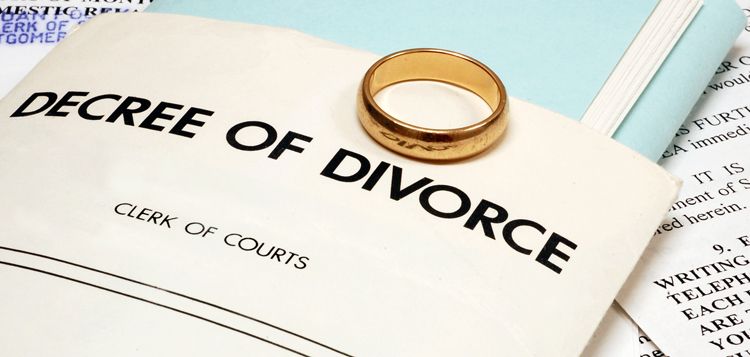

Divorce may not carry the same stigma as it once did, but some people may have a marriage in their distant past they’d like stricken from the planet. While it may be on record somewhere if a person goes searching for it, they’d be able to find it quite easily if you have the divorce decree among your important papers. We suggest keeping this with those love letters and notes you wanted to discard, making the work easier for your Cleaner.
Sweep and Clear: Secret Society or Racist Groups


There’s not much we can say about secret societies because they’re, well, secret. If you happen to be a member of a clandestine organization it’s doubtful they’ll make it public. But you could have documentation, robes, masks, or other things we have no idea about. We suggest employing a Cleaner with knowledge of your involvement in this secret society, perhaps another member, since it’s all very mysterious and curious.
If the deceased secretly belonged to something like the Ku Klux Klan, anything affiliated with Nazis, or part of another group associated with racial bigotry, then it’s up to them to decide what they want done with the items. Whether it belongs to you, or one of your great-great-grand parents, it’s a judgement call we want no part in making. We’re just letting you know that these things may exist and have to be dealt with at some point.
Swingers Club Membership


This, we can unequivocally say, is nothing to be ashamed of. In all sincerity, we have no idea if there are actual memberships and guidelines for these types of groups. We’d look it up but then it’d become part of our browser history. If you’ve made it this far in the article you know why that might be an issue in the future. (“Why was Everplans interested in swingers clubs?” they’d ask…)
We covered a lot of ground but we’re sure there’s more out there. Don't forget to check out our How To Identify Skeletons In Your Closet Checklist and Quiz! If you think we left anything out, or have suggestions to better help people avoid posthumous personal problems, let us know here.
- All The Information You Need To Share About...It’s incredibly sad to think of our pets without us, but here’s your chance...Read more
- Estate Planning For Your PetsAmerica is approaching a belly rub crisis. Or, in the case of cats, that...Read more
- What To Say To Someone Grieving The Loss Of A PetFor most people, it’s not just a dog, cat, or other domesticated animal....Read more
- Planuary: Organizing For The New YearIf the turn of a new year inspires you to finally get your life in order, we...Read more


